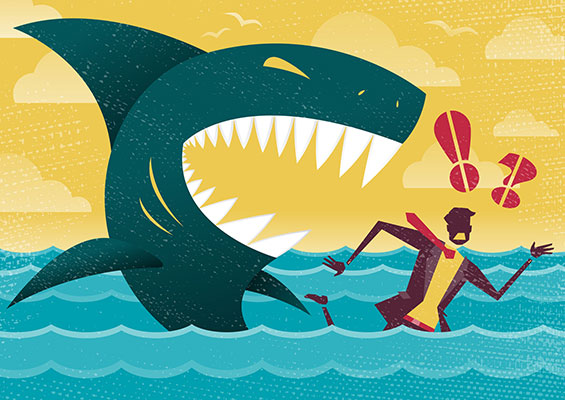The main program consists of three audio MP3 tracks. These audio tracks are created using brainwave-synchronization technology audio that speaks directly to your subconscious, to help you eliminate limiting beliefs.

Stress has always been around. It’s a normal psychological and physiological reaction to the demands of life.
People experience severe stress-inducing challenges every year and many have some type of stress every day.
In looking at the causes of stress, remember that your brain
comes hard-wired with an alarm system for your protection.
When it perceives a threat, it signals your body to release a
burst of hormones to fuel your capacity for a response.
This has been labeled the "fight-or-flight" response.
Once the threat is gone, your body is meant to return to a normal relaxed state.
Unfortunately, the nonstop stress of modern life means that your alarm system rarely shuts off.
Most of us have lived with minor stresses for so long
we simply don’t recognize the changes in our bodies as being a result of that stress.
And it can affect your thoughts, feelings, and behavior.
The body responds to physical and mental stressors in much the same way
it does to injuries, electric shock, and harmful environmental toxic substances.
If left unchecked, it can contribute to high blood pressure, heart disease, obesity,
and diabetes, and it will have a major effect on longevity.
The fight or flight response at the core of our brain is a survival mechanism,
something left over from the days when man had to deal with stressful
situations like fighting wild animals with handmade weapons.
He could either fight the animal or run from it.
He didn't have to think about natural health, it just came… well, naturally.
During times of increased stress, the liver and pancreas will dump enormous
amounts of sugar and insulin into the bloodstream as a response to the emergency.
This served the caveman well. He was pumped up to either fight or run,
and whatever he chose to do, he used this excess sugar.
When we face an emergency or dangerous situation, muscle tension, breathing,
and heart rate increase, blood races to the heart and brain from other organs,
oxygen increases in the brain, and blood sugar level rises.
Adrenaline, cortisol, and other hormones are released.
Today, we have no outlet for these excesses so they’re stored in the fat cells, usually in the abdomen.
Fat is inherently inflammatory and triggers more stress,
the same kind that occurs when internal or external forces exceed the strength of a structure.
This is true whether the structure is a bridge or a human body.
It may all be very natural, but it's not good for health.
And it's just as often not the threat itself that causes stress but the perception of the stressor or threat.
For instance, a dog can approach two different people and one may act in fear,
prompting the fight or flight mechanism while the other may feel glad thinking about
petting the animal and causing “feel good” hormones to increase.
This essentially suggests that most modern stress is often self-induced.
Worry is a stress that is sometimes legitimate.
When our teenage driver is out for the first time on his own,
there is normally a certain amount of parental concern.
But when it comes to stress, your body cannot tell the difference between
what is actually happening and what we think may happen.
So even when the threat is not real,
emotional stress occurs and effects the body.
The process of worry is the same whether large or small.
We project what may happen in the future and assess whether
or not we have the resources needed to cope with anticipated outcomes.
Properly placed, this is useful because we can
forecast with some accuracy what we may soon need.
We do this through our experience and intellect.
With a few bad experiences in our history,
however, we may get into the habit of always predicting bad outcomes.
This is called catastrophic thinking.
Learned helplessness is a passive reaction to situations
we can't control or think we can't control.
Both catastrophic thinking and learned helplessness are stresses
to which your body responds with inflammation.
You can learn to train your brain so that your natural reactions are
a healthy response instead of one which causes chronic conditions.